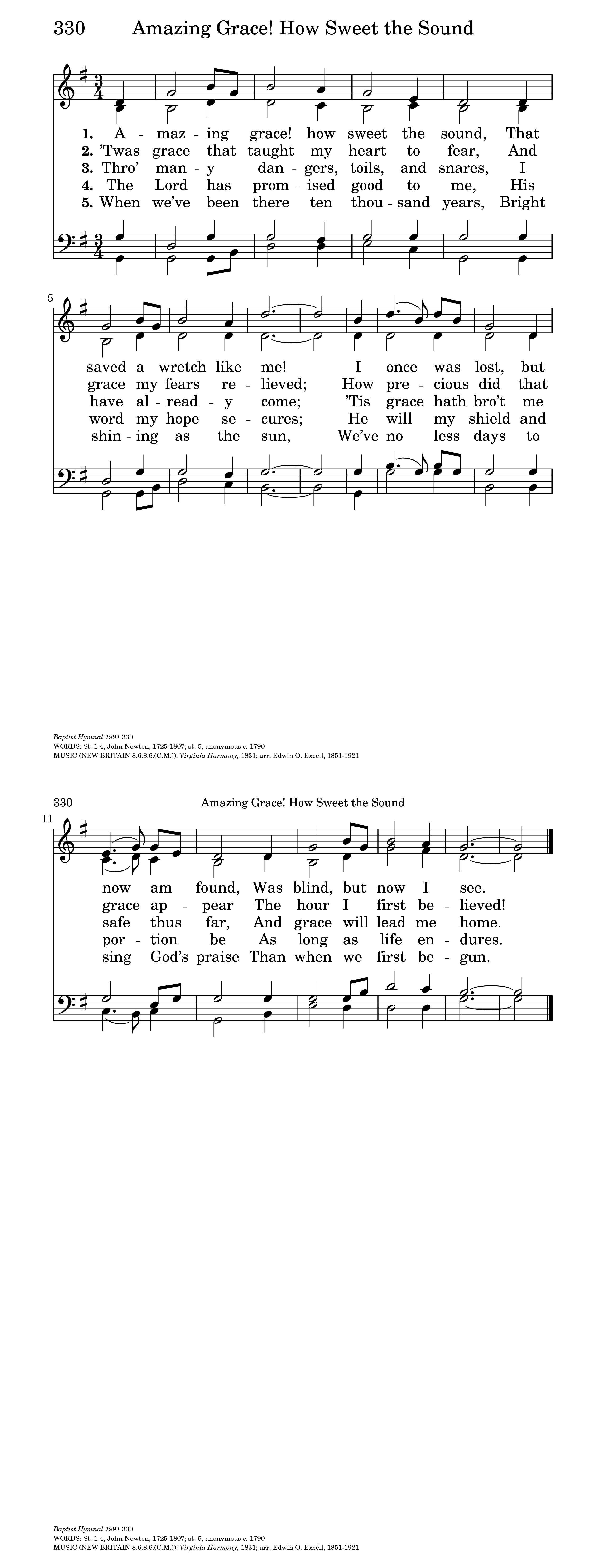that saved a wretch like me!
I once was lost, but now am found,
was blind, but now I see.
2. 'Twas grace that taught my heart to fear,
and grace my fears relieved;
how precious did that grace appear
the hour I first believed!
3. Through many dangers, toils and snares
I have already come:
'tis grace has brought me safe thus far,
and grace will lead me home.
4. The Lord has promised good to me,
his word my hope secures;
he will my shield and portion be
as long as life endures.
5. Yes, when this flesh and heart shall fail,
and mortal life shall cease:
I shall possess, within the veil,
a life of joy and peace.
6. The earth shall soon dissolve like snow,
the sun forbear to shine;
but God, who called me here below,
will be forever mine.
Scripture; Genesis 15:1-6; Exodus 15:6; 1 Samuel 7:12; 1 Kings 1:29
"Amazing Grace! How Sweet the Sound" is one of the most beloved hymns in the world, known for its powerful message of forgiveness and redemption. It was written in 1772 by John Newton, a former slave trader who underwent a profound spiritual transformation. Newton had a troubled youth and spent years involved in the Atlantic slave trade. However, during a violent storm at sea in 1748, he feared for his life and cried out to God. The ship survived, and Newton saw this as a sign of divine intervention. This moment marked the beginning of his conversion to Christianity. Over time, he left the slave trade, became an Anglican minister, and eventually joined the movement to abolish slavery in Britain. Newton wrote "Amazing Grace" to accompany a sermon for New Year’s Day in 1773, reflecting on his personal journey from a life of sin to one of faith. The hymn’s most famous lines — “Amazing grace! how sweet the sound / That saved a wretch like me!” — speak to the depth of his remorse and the joy of his redemption. Set to the tune "New Britain" in the 19th century, the hymn grew in popularity, especially in America, where it became a staple in revival meetings and civil rights marches. Its universal message of hope and transformation continues to resonate with people across cultures and generations



No comments:
Post a Comment